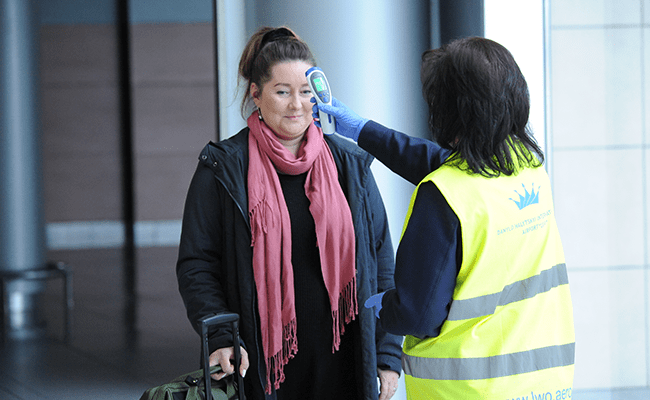The International Air Transport Association (IATA) has called for the development and deployment of rapid, accurate, affordable, easy-to-operate, scalable, and systematic COVID-19 testing for all passengers before departure as an alternative to quarantine measures in order to re-establish global air connectivity.
According to a statement, IATA will work through the International Civil Aviation Organization (ICAO) and with health authorities to implement this solution quickly. In compare to 2019 statistics, the international travel is 92% down, due to loss global connectivity as countries closed their borders to fight the pandemic. Although some countries has cautiously reopened its international borders, only limited uptake has taken place due to either quarantine measures making travel impractical or the frequent changes in COVID-19 measures make planning impossible.
Alexandre de Juniac, IATA’s Director General and CEO said, “The key to restoring the freedom of mobility across borders is systematic COVID-19 testing of all travelers before departure. This will give governments the confidence to open their borders without complicated risk models that see constant changes in the rules imposed on travel. Testing all passengers will give people back their freedom to travel with confidence. And that will put millions of people back to work,”
“The economic cost of the breakdown in global connectivity makes investing in a border-opening testing solution a priority for governments. The human suffering and global economic pain of the crisis will be prolonged if the aviation industry on which at least 65.5 million jobs depend collapses before the pandemic ends. And the amount of government support needed to avert such a collapse is rising. Already lost revenues are expected to exceed $400 billion and the industry was set to post a record net loss of over $80 billion in 2020 under a more optimistic rebound scenario than has actually unfolded.” IATA said in the statement.
Alexandre de Juniac further added, “Safety is aviation’s top priority. We are the safest form of transport because we work together as an industry with governments to implement global standards. With the economic cost associated with border closures rising daily and a second-wave of infections taking hold, the aviation industry must call on this expertise to unite with governments and medical testing providers to find a rapid, accurate, affordable, easy-to-operate, and scalable testing solution that will enable the world to safely re-connect and recover,”
IATA’s public opinion research revealed strong support for COVID-19 testing in the travel process. Some 65% of travelers surveyed agreed that quarantine should not be required if a person tests negative for COVID-19. Furthermore, with 84% agreeing it was evident that passengers’ support testing should be required of all travelers and 88% agreed that they are willing to undergo testing as part of the travel process. In addition to opening borders, public opinion research also indicated that testing will help to rebuild passenger confidence in aviation.
IATA’s call is to develop a test that meets the criteria of speed, accuracy, affordability, and ease of use and that could be administered systematically under the authority of governments following agreed international standards. However, they does not see COVID-19 testing becoming a permanent fixture in the air travel experience, but it will likely be needed into the medium-term for air travel to re-establish itself.
“Many see the development of a vaccine as the panacea for the pandemic. It will certainly be an important step, but even after an effective vaccine is globally recognized, ramping up production and distribution is likely to take many months. Testing will be a much-needed interim solution,” said de Juniac.
Alexandre de Juniac further stated that the needs of medical personnel must be the first priority and with the recognition that educational institutions and workplaces will also be vying for effective mass testing capabilities, policymakers must consider the economic stimulus that only aviation can provide when prioritizing their testing resources.
For further information please visit iata.org
IATA is calling for the development & deployment of #COVID19 testing for all air passengers before departure in order to safely re-establish global air connectivity.
— IATA (@IATA) September 22, 2020
Read more 👉 https://t.co/Air0MU9lU7#ReadyToFly #aviation #travel pic.twitter.com/jwKhRlwVu3




